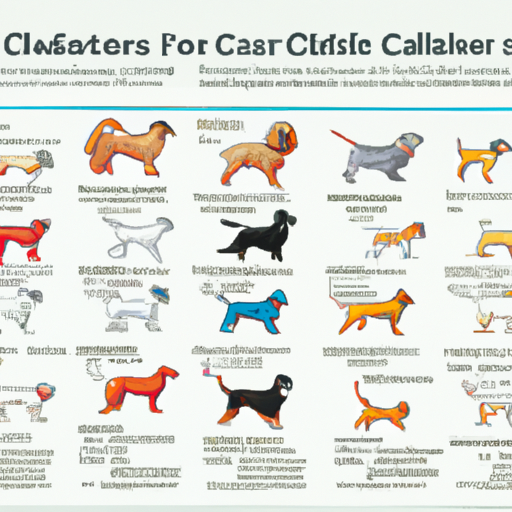Your dog is more than just a pet; they’re a part of your family. As their caregiver, it’s your responsibility to ensure they’re healthy and happy. One crucial part of that is making sure they’re eating the right amount of calories every day.
Understanding Your Dog’s Caloric Needs
Dogs, like humans, have different caloric needs depending on their size, age, and level of activity. While you might think that a bigger dog needs more calories, it’s not always the case.
Here’s a rough guide:
| Weight of Dog | Average Daily Calorie Intake |
|---|---|
| 10 lbs | 200 – 275 calories |
| 20 lbs | 325 – 400 calories |
| 30 lbs | 375 – 500 calories |
| 40 lbs | 425 – 600 calories |
| 50 lbs | 700 – 900 calories |
Factors Influencing Your Dog’s Caloric Intake
Knowing the average caloric intake isn’t enough. You need to consider other factors, such as:
- Activity Level: Active dogs require more calories. If your dog is largely sedentary, they’ll need fewer calories.
- Age: Puppies and young dogs need more calories for growth. Older dogs require fewer calories.
- Health Status: Dogs with certain health conditions may have different caloric needs.
Adjusting Your Dog’s Diet
After understanding your dog’s caloric requirements, you might need to make changes to their diet. Consider these points:
- If your dog is overweight, reduce their caloric intake gradually.
- If your dog is underweight, increase their calories, but do so slowly to avoid upsetting their stomach.
- Consider consulting with a vet or a canine nutritionist for personalized advice.
Counting Your Dog’s Calories
Counting your dog’s calories doesn’t have to be a chore. Here are some tips:
- Check the calorie content on the dog food label.
- Use a measuring cup to portion out meals.
- Keep a record of your dog’s calorie intake.
FAQs
Q: Can I just feed my dog the same amount of calories every day?
A: No, their caloric needs can change based on activity level and health conditions.
Q: What if my dog is still hungry after eating their calorie limit?
A: Consult with a vet. They might be hungry due to a health condition.
Q: Can I feed my dog human food to increase their calories?
A: Not all human food is safe for dogs. Always consult with a vet before changing their diet.
In conclusion, as a dog caregiver, understanding your dog’s caloric needs is essential to their health. Keep these points in mind and consult with a vet for personalized advice. Your furry friend is relying on you to make the best decisions for their health and happiness.



